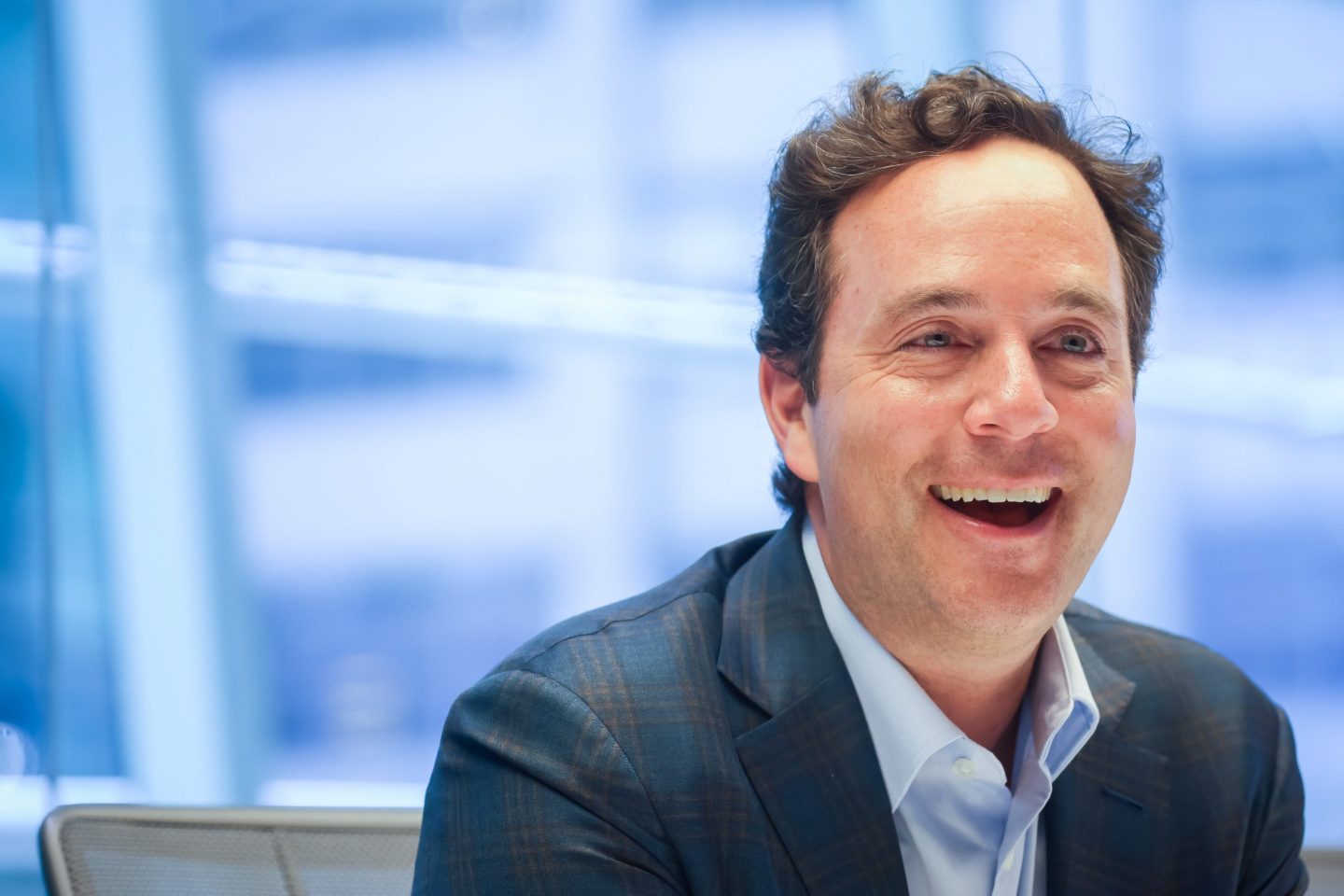It’s a nervy time to be a frontline worker in a call center or back-office hub. Startups are advertising ‘AI employees’ and the likes of venture capital firm Andreessen Horowitz are talking of AI ‘productizing and unbundling’ the business process outsourcing (BPO) sector that executes the core functions of corporations around the globe. No doubt customer service, HR, and IT workers in the industry are wondering how their employers will respond—and whether their livelihoods are at risk.
At first glance, then, it’s surprising to see the world’s largest BPO firm, Paris-headquartered Teleperformance, ranking 16th on this year’s Fortune’s 100 Best Companies to Work For – Europe list.
The €10.2 billion ($12 billion) revenue company, widely known as TP, has managed to keep its 500,000 people happy in the AI age by maintaining a human-centric culture even as it implements AI into internal and client-facing processes.
Alan Winters, TP’s global chief privacy and data ethics officer, and until very recently its chief people officer, says that some employees worry about being displaced by AI, but the key is to be transparent about what you’re using AI for and why. “People need to understand what’s happening. They’ll make the decision they need to for themselves, but the more they understand, the less fearful of change they will be,” he explains.
Winters also advocates for brutal honesty, including about what you don’t know—which, in the case of a nascent technology like AI, may be quite a lot. Assuage fears directly, if possible.
“AI is not going to replace all of our jobs. It’s going to allow us to put resources where the impact from human interaction will be the most,” Winter says. Sometimes that means automating tasks for efficiency but not core activities that involve empathy and personal connection. In those cases, AI is there to assist or augment.
“People need to understand what’s happening. They’ll make the decision they need to for themselves, but the more they understand, the less fearful of change they will be.”
Alan Winters, TP’s global chief privacy and data ethics officer
He points to recruitment as an example. TP uses AI in various ways to improve efficiency and ease the candidate experience, from the job application process to onboarding. But people are still at the center. AI doesn’t conduct a video interview, but it does ‘listen’ to calls between a candidate and recruiter to help the latter make an assessment.
“I could automate 100% of my recruiting process. But is that what I want the first experience of new employees to be if I’m telling them we’re a people-focused organization and that we value emotional intelligence?”
Humanity as a competitive advantage
A business case underlies TP’s principle that technology cannot replace person-to-person interaction. Winters explains that TP sees combining human emotional intelligence (EI) with AI as a key differentiator in a market in which competitors are more focused on using technology to cut overheads.
“Ever since [founder and CEO] Daniel Julien started the company almost 50 years ago, we’ve had the mantra that if you have happy employees, you will have happy end customers, and therefore happy clients,” Winters says. AI hasn’t changed this view. “Who will our clients want to work with? The companies that are investing in their people, or the ones that say I can do this for the lowest cost, but I’ve taken the humanity out of human interaction?”
To double down on its commitment to human-centric operations—and to reassure employees that it’s serious about its strategic value—TP has begun a culture change program to incorporate EI into its implementation of AI and train its workforce on EI in the AI era.
(The training aptly includes a set of AI-generated songs to help people remember key messages, with titles like “Heart’s Compass” and “I Know What I Feel”).
As with any change program, measurement matters. Alongside harder metrics like employee attrition, TP actively examines the impact of the training on the workforce and of AI itself. For example, as part of a new ‘EI index’ metric with Great Places To Work, the company assesses employee understanding and fear of AI, how much they trust what management says about it, and whether they think communication has been transparent enough.
Deft implementation
Winters has several lessons to share with other companies wanting to embed EI in AI. First, be thoughtful about how you implement technology; don’t rush. TP uses a Lean Six Sigma approach to map out processes and analyze where teams have practical issues or where there’s an opportunity to do things differently. It then tests how AI could help support the process—and how people respond—before rolling it out.
“If you’re not surgical about where you put AI, we believe that will have a huge [negative] impact on your culture,” Winters says.
Second, ensure the whole executive team fully buys into the idea and holds others accountable for implementation. “If you don’t have 100% support from the executive team, it will not happen, especially with a global company of 500,000 people in 100 countries—that’s a lot of people to get on the same page,” he adds.
Lastly, Winters says it’s essential to approach AI—and EI—with a humble, learning mindset. “Frankly, you’ll make mistakes, but we’re human, we all make mistakes. The key is how you learn from that.”











